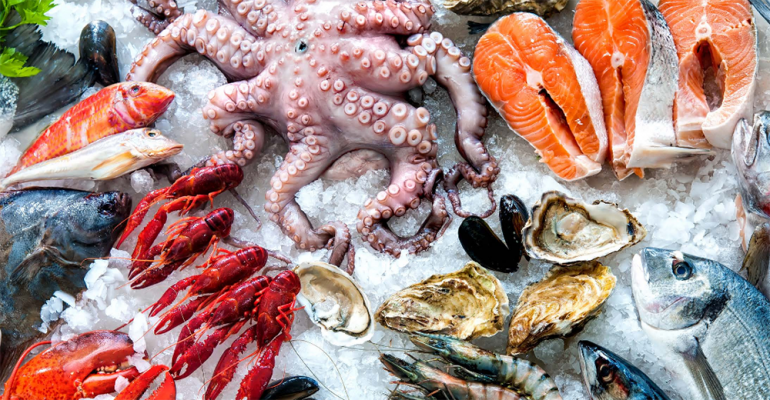
Seafood like fish, lobster, shrimp, cod, haddock, herring, sardines, crab, salmon, haddock, and other fish which have large muscles for protein are rich in omega-3 fatty acids (EFAs). The fatty acids give fish their ability to grow as well as to maintain their shape. Their versatility as food is also well demonstrated by the fact that they can be used to prepare just about any dish you could imagine. For centuries, people have enjoyed seafood not only because of it’s nutritional value but also because it is generally scrumptious and mouthwatering.
However, what many people may not know is that fish can contain high levels of mercury, which is a noxious and cancer-causing substance. It’s mainly found in seafood caught in the cold waters of the northern Atlantic region. The types of fish that have high levels of mercury include tilefish, shark, swordfish, king mackerel, northern pike, trout, whitefish, muskellunge, striped bass, salmon, trout, haddock, sturgeon, amberjack, tilefish, salmon, halibut, striped bass, black fin tuna, king mackerel, among others.
Fish like shrimp, cod, haddock, sardines, salmon, crab, trout, halibut, striped bass, white fish, among others, have a low protein content. However, they are good sources of fats. Other seafood that has high protein content and a high fatty acid content are oysters, crabs, Herring, cod, haddock, tuna, trout, salmon, halibut, bluefish, pike, sturgeon, salmon, mussels, shad, among others. This food type is considered to be a complete food or a balanced food by nutritionists because it provides energy, protein, vitamins, minerals, carbohydrates, fat, lipids, as well as dietary fiber.
In order for us to derive the most nutritional benefit from seafood, it should be healthy enough to maintain our body’s cells, bones, muscles, skin, as well as hormones and enzymes at optimum levels. One of the benefits of eating seafood is that it can help maintain the proper levels of omega-3 fatty acids, which are important for our health. Some research has suggested that Omega-3 helps prevent heart diseases.
Studies also suggest that seafood is beneficial when it comes to increasing your stamina and helping you lose weight. But for people who are on weight loss plans, they have to be careful how much of their food intake is fish in their diets. Some studies have shown that eating a lot of fish actually inhibits the body’s natural ability to burn fats. And too much of this type of food could result to gaining more weight than you want.
When it comes to seafood filleting, there is usually mercury levels in the fish. The good news about mercury levels in fish is that it is usually very low or negligible, especially since the fish will be caught in water where there are large populations of other fish and marine animals. However, in some areas where pollution is a problem, the levels of mercury in fish may be too high. Therefore, if you are planning to buy fish for your recipe, make sure that you check the food label to ensure that it doesn’t contain high levels of mercury.

 The Wellness System
The Wellness System